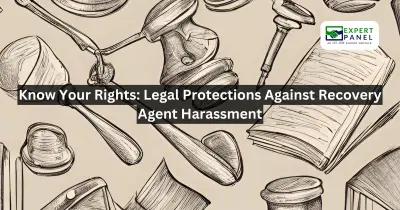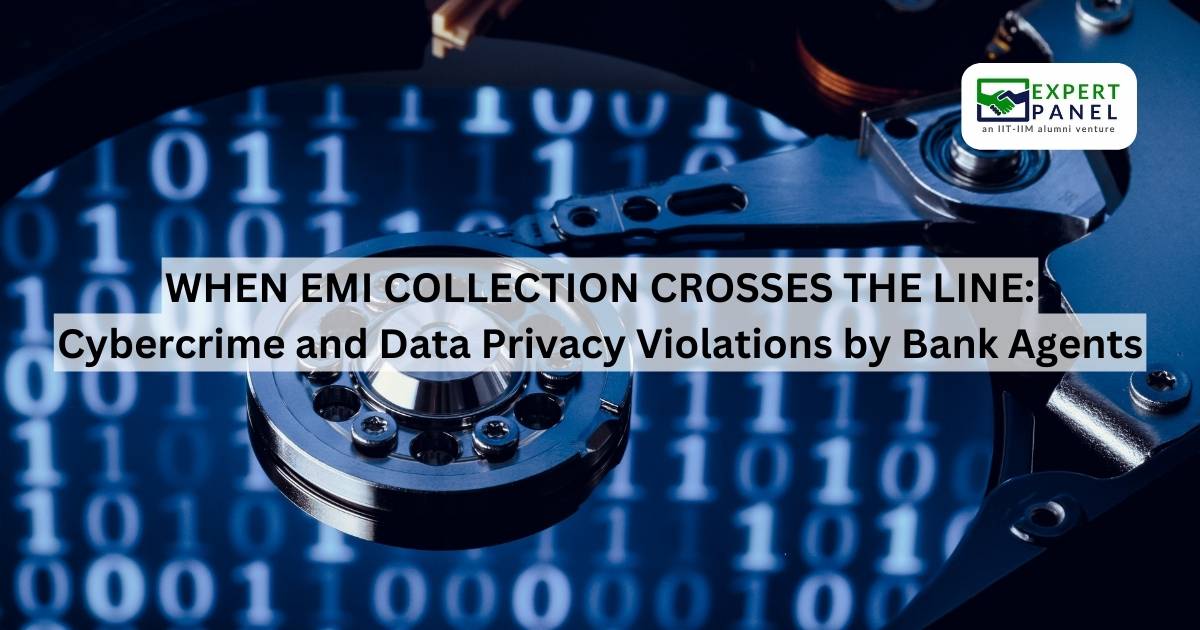· Recovery Agent Harassment · 4 min read
Know Your Rights: Legal Protections Against Recovery Agent Harassment
Learn about your rights and legal protections against harassment by recovery agents, including RBI guidelines and available remedies.

With increasing cases of aggressive practices by recovery agents, customers often feel harassed and intimidated. However, Indian law provides several protections against misleading and unlawful recovery practices. Knowing your rights can empower you to stand up against such tactics. Here, we outline the legal boundaries that recovery agents must adhere to, steps to document and report harassment, and available remedies for victims.
RBI Directives to Ensure Fair Practices by Recovery Agents
The Reserve Bank of India (RBI) has set several guidelines to ensure ethical practices by recovery agents. Key legal protections include:
No Abuse or Intimidation: Recovery agents are prohibited from using force, threats, or any form of verbal or physical abuse. Any action that compromises your personal safety or dignity is grounds for legal action.
Limited Calling Hours: Recovery agents may only call borrowers between 7 a.m. and 7 p.m. Calls outside these hours, or repeated calls intended to cause distress, are considered harassment.
Privacy Respect: Recovery agents are required to respect your privacy and must not communicate details of your debt to family, friends, or colleagues. Disclosing your financial information to third parties is illegal and invites legal consequences.
Professional Conduct: Agents must communicate professionally and refrain from using harassing language or making false claims about the consequences of non-payment. Threatening jail time for civil debts, for example, is unlawful.
Proper Identification: Agents must identify themselves and the institution they represent. They should carry a legal authorization from the lending institution. Failure to present such credentials raises questions about the legitimacy of their visit.
Steps to Document and Report Harassment
Documenting instances of harassment strengthens your case if legal action becomes necessary. Here’s how:
Collect Evidence: Take photos, screenshots, and keep documentation of any harassing messages or abusive language used by recovery agents.
Maintain a Log: Record dates and times of all calls, visits, or other contacts made by recovery agents. Retain copies of emails, text messages, or any other forms of communication as potential evidence.
Witness Testimony: If harassment occurs in a public setting or workplace, seek witnesses who can testify to the agent’s conduct.
Direct Complaint to Lender: Contact your lender directly to report any inappropriate behavior by the agents, as most financial institutions have procedures for handling customer grievances.
File a Police Report: If you feel threatened or if the agent resorts to physical violence or trespassing, you have the right to file a complaint with the police.
Legal Remedies for Victims of Recovery Agent Harassment
Victims of harassment by recovery agents have several legal avenues for redress. Depending on the nature of the harassment, you may pursue the following:
Bank Grievance Redressal: If the harassment is perpetrated by agents employed by banks or financial institutions regulated by the RBI, you can file a complaint with the bank’s grievance redressal officer. If unresolved, escalate the complaint to the RBI’s Consumer Education and Protection Cell (CEPC).
Consumer Court Complaint: Consumers have the right to seek redress for unfair practices, including harassment, by filing a complaint in the Consumer Court. Compensation for mental anguish or damage to reputation can be sought.
Civil Suit for Damages: You may file a civil lawsuit for emotional distress or injury caused by the recovery agent’s illegal actions. Depending on the severity, you could also request a restraining order to prevent further harassment.
Criminal Complaint: If the recovery agent has used physical violence, issued threats, or trespassed on your property, file a criminal complaint under the Indian Penal Code (IPC). Relevant sections include:
Section 503: Criminal intimidation.
Section 504: Intentional insult to provoke breach of peace.
Section 506: Punishment for criminal intimidation.
Section 441: Criminal trespass.
Human Rights Commission: For extreme cases of harassment or rights violations, you can approach the National or State Human Rights Commission, which can recommend action against both the recovery agent and the institution employing them.
Conclusion
While dealing with recovery agents can be stressful, Indian law provides robust protections against harassment. By documenting incidents and taking appropriate legal action, you can stop the harassment and safeguard your dignity. If in doubt, consult a lawyer to understand your options and the appropriate timing for legal recourse. Legal mechanisms are in place to protect you and ensure fair treatment in the debt recovery process.



